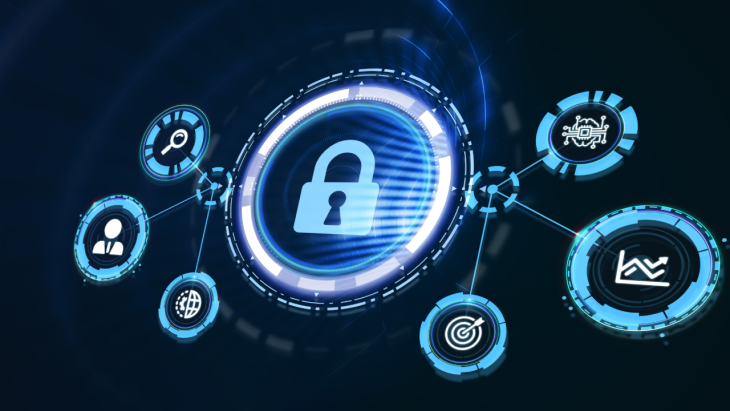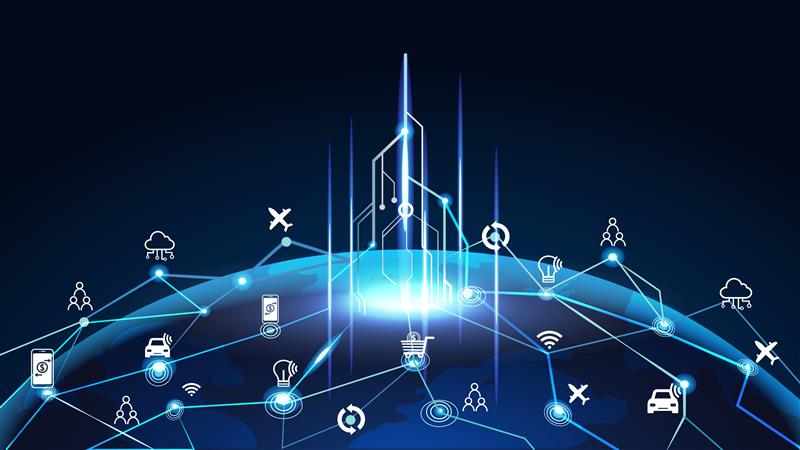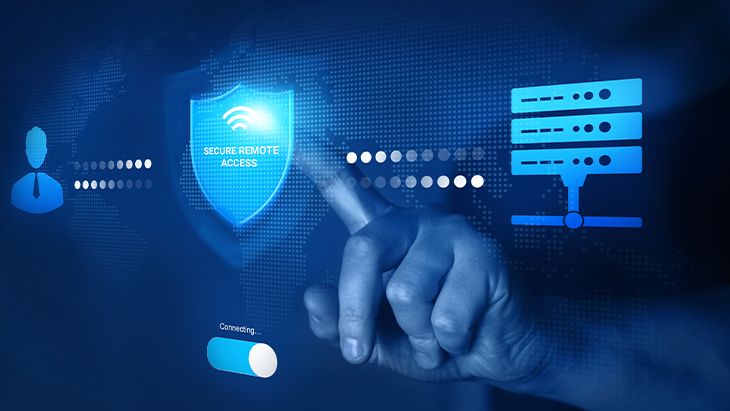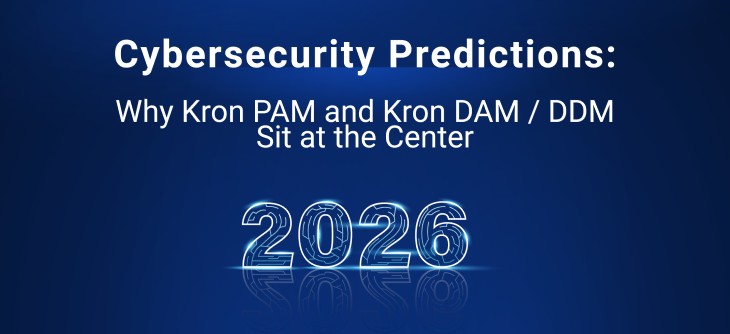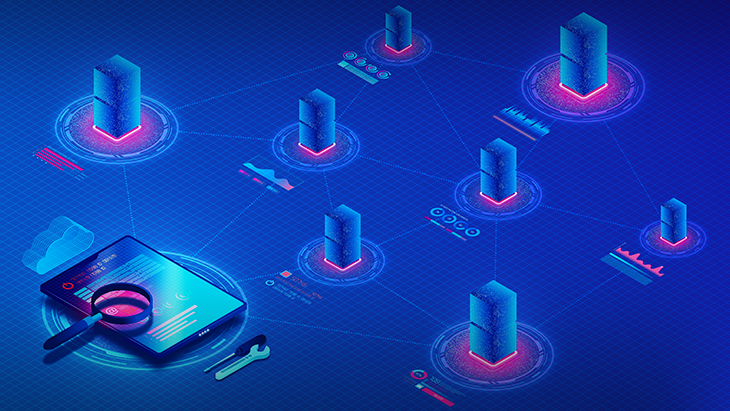
Smart Cities and Network Monitoring
Nov 21, 2021
/
Kron
Smart cities make life easier for everyone in the city, especially the city government. Remote access to all events requiring on-site inspection or intervention reduces the workload of IT professionals and enables them to focus on other tasks, increases their efficiency, and makes it easy for people to benefit from immediate solutions in many different situations across the city.
On the other hand, it should also be noted that smart cities are a necessity considering the current situation in the world. According to the 2018 study titled World Urbanization Prospects by the United Nations Department of Economic and Social Affairs, the urban population will account for 68% of the world's population by 2050. This shows that the transition into the smart city model is an essential necessity for the sustainability of infrastructure in cities.
The central concept for building and developing smart cities is the same as the concept at the heart of the 21st century: Big Data. City governments receive an endless pile of data out of city residents. City organizations like municipalities being able to access this pile of data in real-time also provides a unique opportunity to improve service quality. With regards to service quality, issues such as creating effective human rights policies, social communities, alleviating transportation problems, and improving environmental quality can be considered.
It is worth highlighting that the main component of smart cities driven by many different technologies such as cloud computing, Big Data analytics, and IoT, is network monitoring. Network monitoring, which provides round-the-clock monitoring of smart city networks and all technical elements of the networks, makes it possible to immediately detect any issues related to the network infrastructure with the help of real-time monitoring. In addition, the interventions carried out by the relevant authorities based on the immediate detection of faults play an essential role in eliminating the factors that negatively affect the quality of life in the city.
The Importance of Network Monitoring Systems
Smart cities should not only be considered as a system that ensures the safety and comfort of their citizens. This is because smart cities should be built to both increase efficiency today and provide sustainability for the future. In this regard, the creation of a transparent roadmap for all stakeholders in the city is essential.
A smart city IT infrastructure should have the capacity to connect and integrate with each other aspects such as transportation systems, public systems, security infrastructure, smart street lighting, traffic lights, water supply, and video surveillance. The path to this capacity is through a successful network monitoring system.
These systems, known as the Network Monitoring System (NMS), enable the monitoring and control of unified networks accessible to everyone in the city and provide uninterrupted access to all services for everyone in the city. The two-way improvement in accessibility helps close the digital divide between different social and economic groups in the city and provides benefits that can improve the city's overall economy.
In addition, smart cities, which means an extensive network connected with IoT devices, also require a successful network monitoring system as it enables the spread of technology across large areas. An advanced network monitoring systems helps make the city's IT infrastructure more efficient and reduces costs. This is because the system monitors equipment that monitors traffic, weather, air pollution levels, and CCTV services, detects faults, and provides the advantage of timely intervention, thus minimizing disruption.
NMS helps prevent interruptions in the flow of services between central government and citizens and is also very effective in ensuring public safety thanks to its continuous monitoring function. Network monitoring systems provide constant monitoring and enable the interception of security breaches within a short period. At this point, it should be stressed that it is necessary to ensure that the employed network monitoring systems fully comply with the relevant legal provisions related to the protection of personal data, privacy, and the ethical dimension of monitoring.
Benefits of Network Monitoring Systems for Smart Cities
A network monitoring system that can functionally activate the entire IT infrastructure of a smart city and integrate different network elements offers significant advantages in managing the flow of information. It is possible to consider the benefits of the relevant systems for smart cities in terms of different points:
- Sharing of data between different network elements and platforms
- Information flow between systems
- Improved IT services and high-efficiency thanks to the information flow
- High cyber security thanks to log management and vigilance system within NMSs
- Increased public safety thanks to CCTV
- Improved accessibility and usability of the services of IT
- Cost reduction thanks to intelligent infrastructure monitoring and management
Having discussed a network monitoring system in general and the benefits, let us now examine in detail the features of our product Single Monitor.
Perfect for Smart Cities: Single Monitor
The features of Single Monitor make it perfect for smart cities. Single Monitor provides automated management of network elements, 24/7 control of all components, and can quickly meet all the requirements of smart cities thanks to its various features.
The following Single Monitor features can significantly ease the management of smart cities:
- Auto Discovery: The auto-discovery feature, one of the core components of Single Monitor, provides an advanced discovery function. The feature supports various IT protocols and works on the principle of increasing efficiency. Auto Discovery also informs IT administrators which network elements should be monitored first based on multiple configuration criteria.
- Performance Manager: This module allows you to create metrics to analyze your IT infrastructure's current and potential performance. It can monitor performance in real-time and generate historical reports on network performance. With the Performance Manager module, you can gain insights in order to identify your current and future needs.
- Alarm and Event Management: This feature allows any fault that occurs in your IT infrastructure to be immediately reported to you. Alarm and Alert Management can play an essential role in eliminating interruptions in services and works for urban life.
- Configuration Manager: The Configuration Manager significantly facilitates the backup process and reduces the potential downtime of devices in your IT infrastructure. The module, which enables you to respond faster, allows you to back up configuration files regularly, eliminating the need for manual backups with vast amounts of data.
- Network Traffic Analyzer: The Traffic Analyzer is an integral part of the network and IT infrastructure monitoring and helps you understand network performance. The feature of recording network traffic and collecting IP data gives the IT manager greater control over inventory management.
If you want to deploy an NMS to improve the performance and efficiency of smart cities and prevent interruptions, you can benefit from Single Monitor. With Single Monitor, you can ensure an advanced network monitoring system with outstanding features that enable you to monitor urban networks end-to-end.
You can contact us for more information about Single Monitor, which was distinguished with the Innovative Product Award at the Innovation and Creativity Awards of the Turkish Electronics Industrialists Association (TESID).
Highlights
Other Blogs

Privileged Task Automation Myths and Realities: Rolling A Boulder Up a Hill


